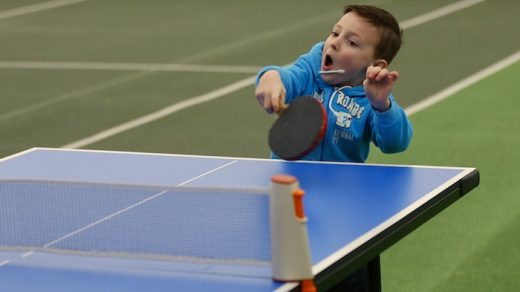New data reveals parents and teachers want esports in schools

Parents and teachers want to see esports take a more significant role in children’s education, thanks to their academic, social, and emotional benefits, according to new research from OnePoll, commissioned by Dell Technologies and Intel.
The survey is based on responses from 1,500 UK parents with children who play esports and 500 financial decision-makers in education such as headteachers, CIOs and department heads.
The results show that over two-thirds (69%) of UK parents believe esports allows their children to develop skills that they might not get through traditional education methods. Of those, over half (54%) say esports gave children more confidence, with teamwork (62%), problem-solving (57%), and technological skills (55%) coming out as the top skills parents believe children can develop through esports.
Brian Horsburgh, education sales director for Dell Technologies in the UK, said: “The capabilities demanded of tomorrow’s workforce will be those that technology cannot replicate.

“Soft skills that were once considered inferior to teachable ‘hard’ skills like machine operation will tip the balance in the future job market. Parents recognise the power of esports to develop their children’s people skills – to communicate, listen, even to lead. That’s a persuasive argument for schools that want their students to be future-ready.”
The top seven skills learners gain through esports according to UK parents are:
- Teamwork (62%)
- Problem-solving (57%)
- Technological skills (55%)
- Confidence (54%)
- Communication (54%)
- Creativity (52%)
- Leadership (45%)
While nearly half (48%) of parents say esports should be added to the school/college curriculum, they are less convinced about career prospects: less than a third (32%) would be happy for their child to have a career in esports.
However, the survey also hints that many parents may be unaware of the breadth of career options within the esports industry. Only a third (33%) know that esports offers a career path in social media management, for example, one of the most in-demand careers in the job market today, according to recent LinkedIn research. Over two-thirds (67%) of parents say that their lack of esports knowledge puts them at a disadvantage when discussing it with their children.

These findings suggest that educating parents on the esports industry, particularly on its potential career pathways, could be needed to give them more confidence in it as a career choice.
One organisation confident in the benefits that esports presents is The British Esports Association, which last year partnered with Pearson to create the world’s first government-approved qualification in esports, the BTEC Nationals Level 3 in Esports.
Tom Dore, head of education at British Esports Association, said: “We welcome further quantitative research around esports in education to support the feedback we’re getting from teachers and students about the positive impact esports has in their classrooms and school communities.
“Esports is a vehicle to motivate and engage a broad demographic of young people. As a teacher myself, I have seen first-hand the benefits to my students when they participate and compete in esports.”
Lindsey Eckhouse, director of licensing, ecommerce & esports at McLaren Racing, said: “People do become professional esports players, often at a pretty young age, but esports is more than just players. Just as our drivers can’t race without their team, esports players can’t play without theirs – that means publicists, physiotherapists, nutritionists, chefs. We must embrace more ways for children – of all abilities, needs and backgrounds – to learn, and those ways should reflect the future career landscape.”

Donna Ford-Clarke, BTEC and technical product director at Pearson: “With global esports revenues growing to $1,084 million in 2021 (Newszoo), the world of esports offers huge employment potential, both in the UK and worldwide. That’s why we worked closely with industry experts to create a career-focused set of qualifications that support the rapid growth of the sector and offer learners a pathway into working in esports and related industries.”
Ruth Marvel, The Duke of Edinburgh’s Award CEO: “It’s great that parents recognise the vital skills esports can give to young people – skills like teamwork, problem-solving and leadership that can help them stand out in future. The DofE is all about reflecting young people’s changing interests and needs and giving them the skills and confidence to make the most of whatever life throws at them.
“Esports lets them do that in a structured, inclusive and safe way, while also being a lot of fun – which is why we recently added it as an activity they can do for their DofE.”





